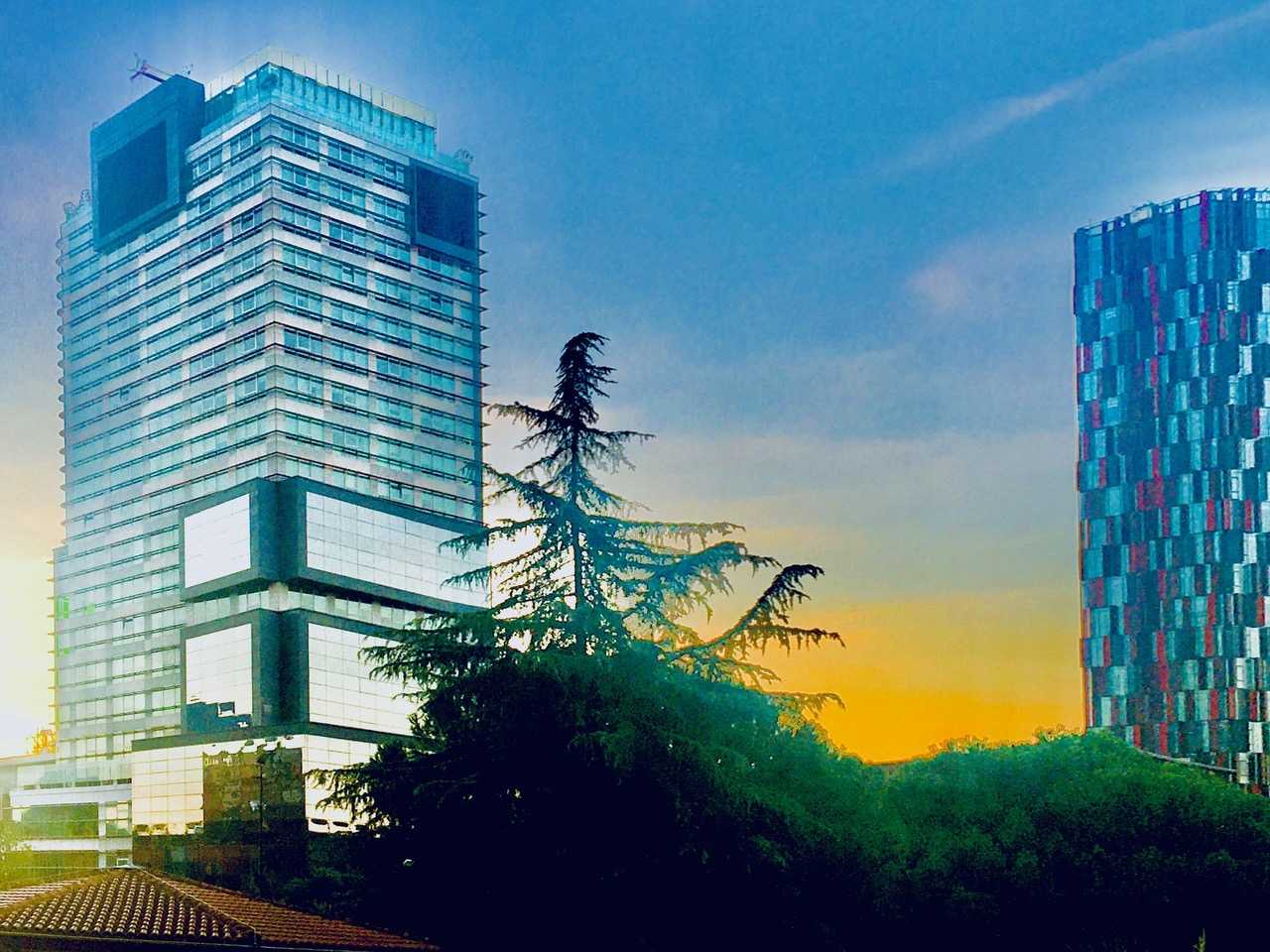
Polychromink / Coin Tower Tirana
TYPOLOGY: Office, shopping, gastronomy
COUNTRY: Albania
CITY: Tirana
YEAR: 2008
ARCHITECTS: BOLLES+WILSON with Studio Comi
PHOTOS: © BOLLES+WILSON, © Ernest Ferizi
What is now known as the COIN Tower originally had the working title Polychromic Tower during planning. It was completed in 2008, in the final years of then-mayor Edi Rama’s façade-coloring program, which aimed to give a new face to the grey, post-communist city. BOLLES+WILSON were asked by the mayor to find an acceptable façade design for the already-under-construction tower. It was built without a crane, with concrete carried up on the workers’ backs. It features a Coat of Many Colours of sun louvers wrapping its somewhat irregular silhouette – unfortunately, only half of these arrived from the Turkish supplier. As the first post-communist tower, it soon became Tirana’s hub of luxury shopping.




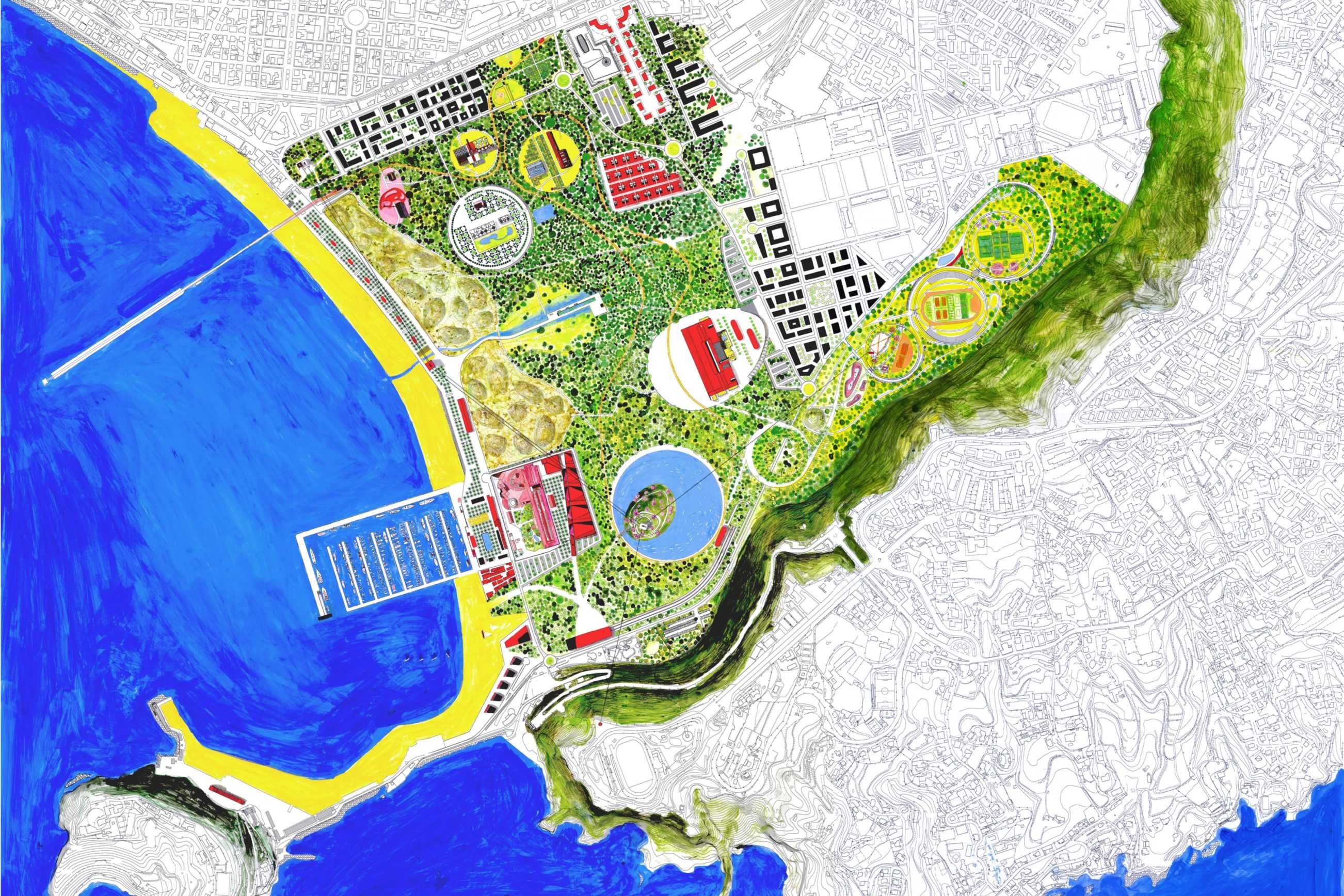
Napoli Bagnoli
TYPOLOGY: Competition / Area development / Masterplan
COUNTRY: Italy
CITY: Naples
YEAR: 2020
COMPETITION: Closed competition
COLLABORATORS: OTTAVIANI ASSOCIATI, GREENCURE landscape & healing gardens, Gianluca Peluffo&Partners Architettura srl, Nicola Gallinaro
The proposal is based on two complementary strategic choices: the interpretation of the park as a green flow, made up of a great variety of landscapes within which there are clearings that welcome the various episodes of industrial archeology, and the redesign of the seafront in continuity up to the island of Nisida, making it possible to expand the space for the beach and the Porto Turistico.








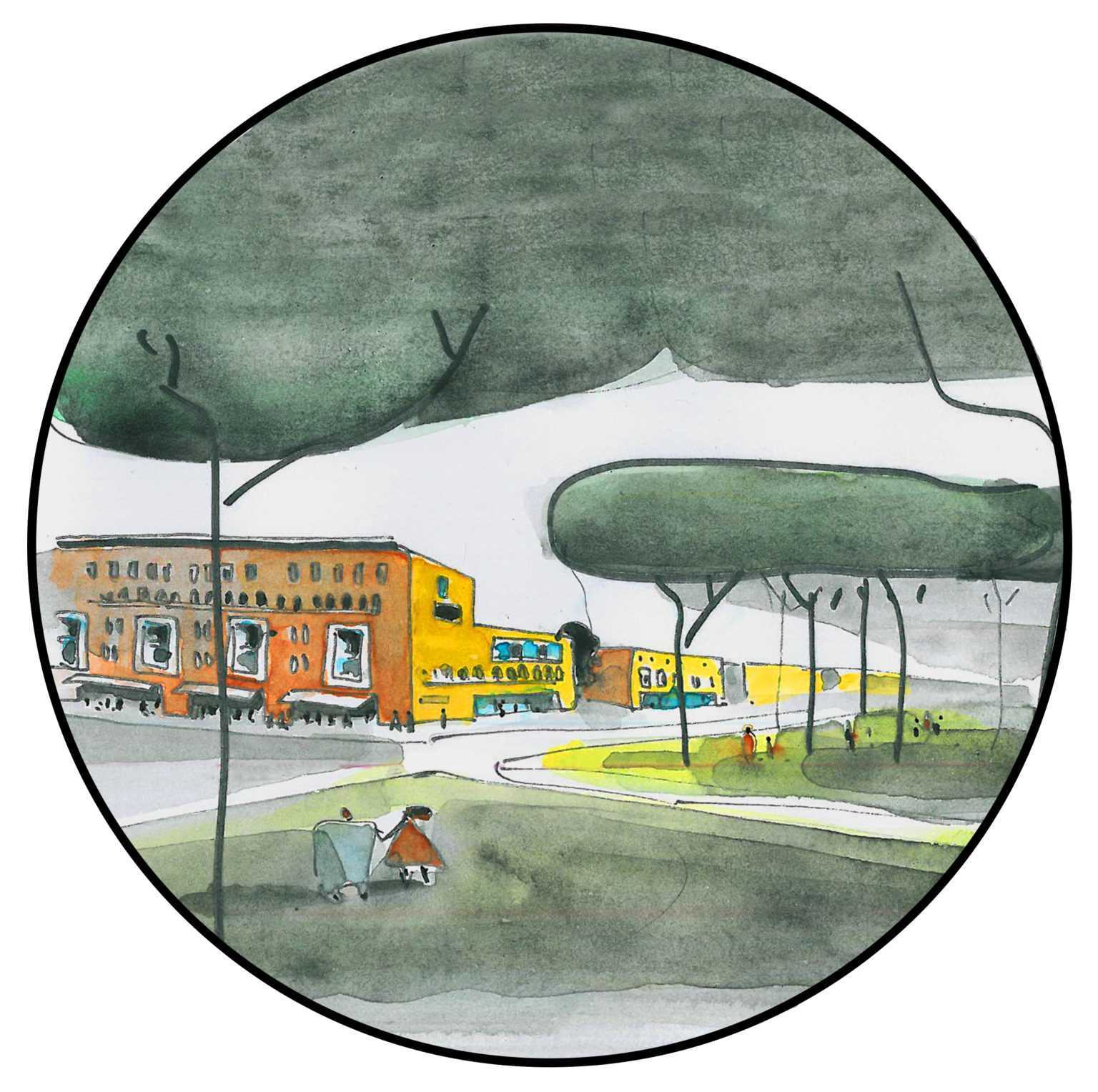
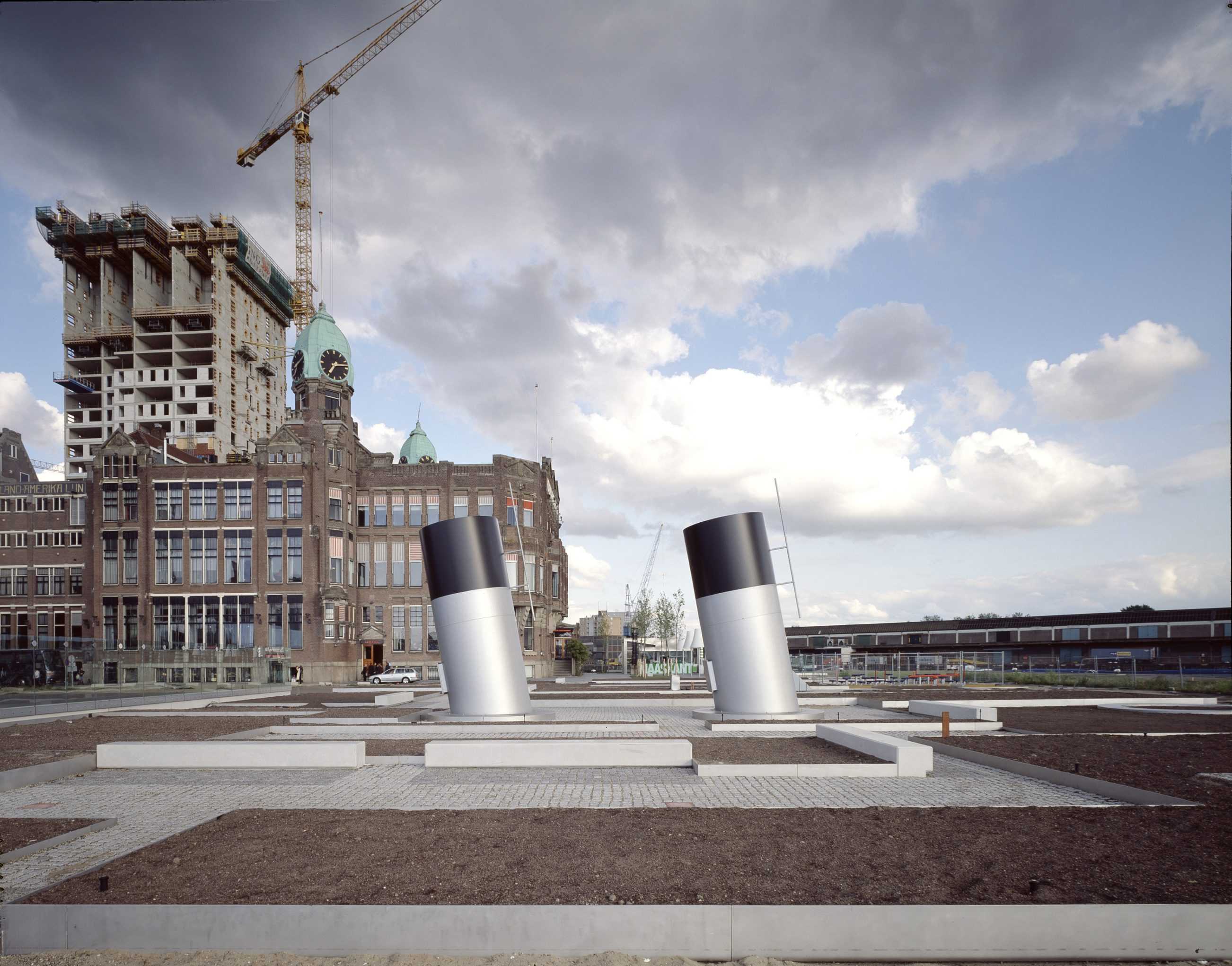
Landscaping Hotel NY
TYPOLOGY: Landscape
COUNTRY: The Netherlands
CITY: Rotterdam – Kop van Zuid
YEAR: 2006
CLIENT: City of Rotterdam (dS+U), Hotel New York partner
PHOTOS: © Christian Richters
The former embarkation point for emigration to the New World – a ‘Holland/America’ theme. Two landscapes (intimate Dutch gardens and a prairie-like American event- space) are divided by a conceptual border. Large scale text (like a Steinberg drawing) is inlayed in the pavement. To date the Dutch side including the Hotel Terrace, Maaskant Pavilion, vent Funnels, playground and intimate Dutch gardens is complete. despite regular dockings of American warships the narrative landscape on the American side of the Dutch-Amerika border remains unexecuted.





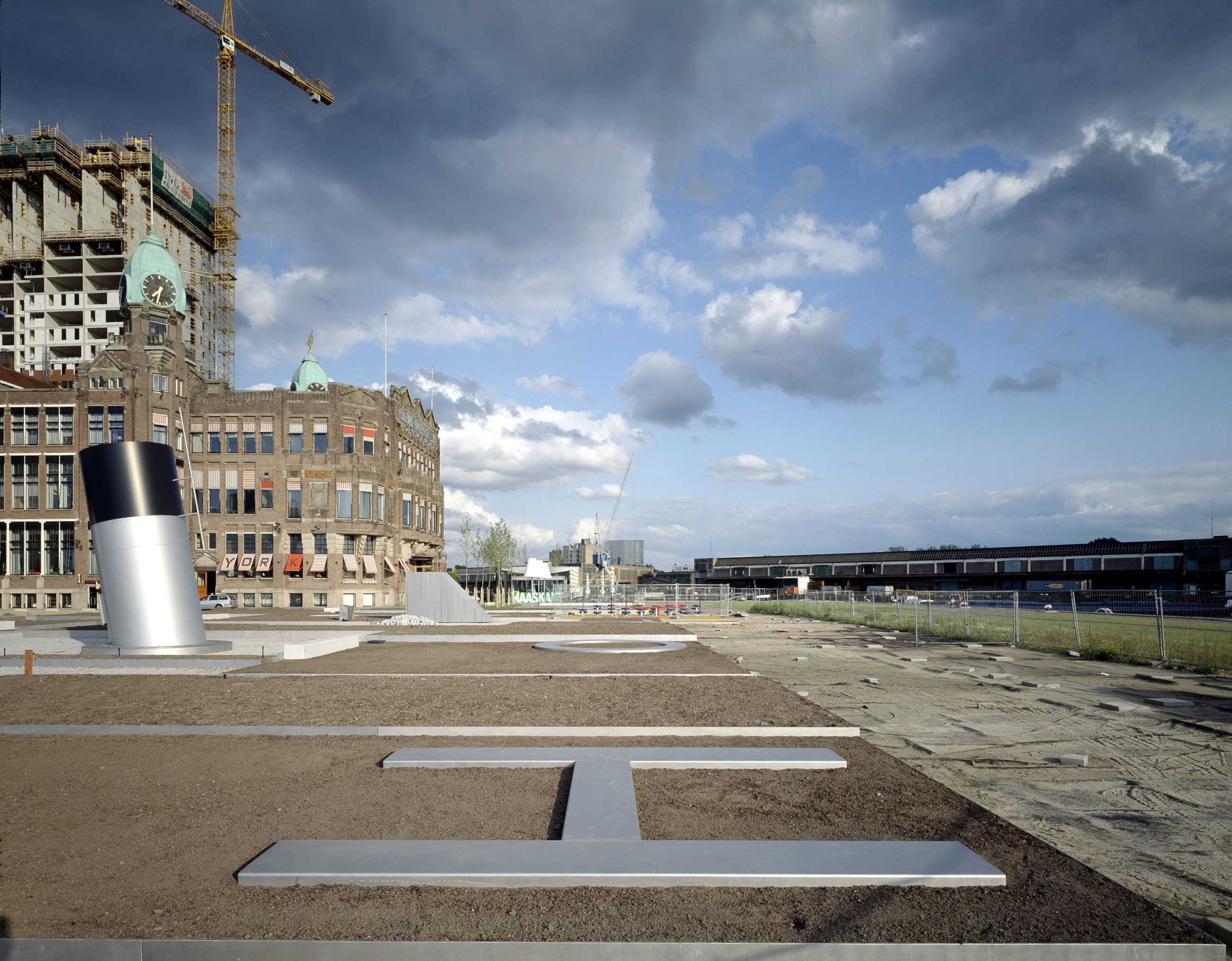




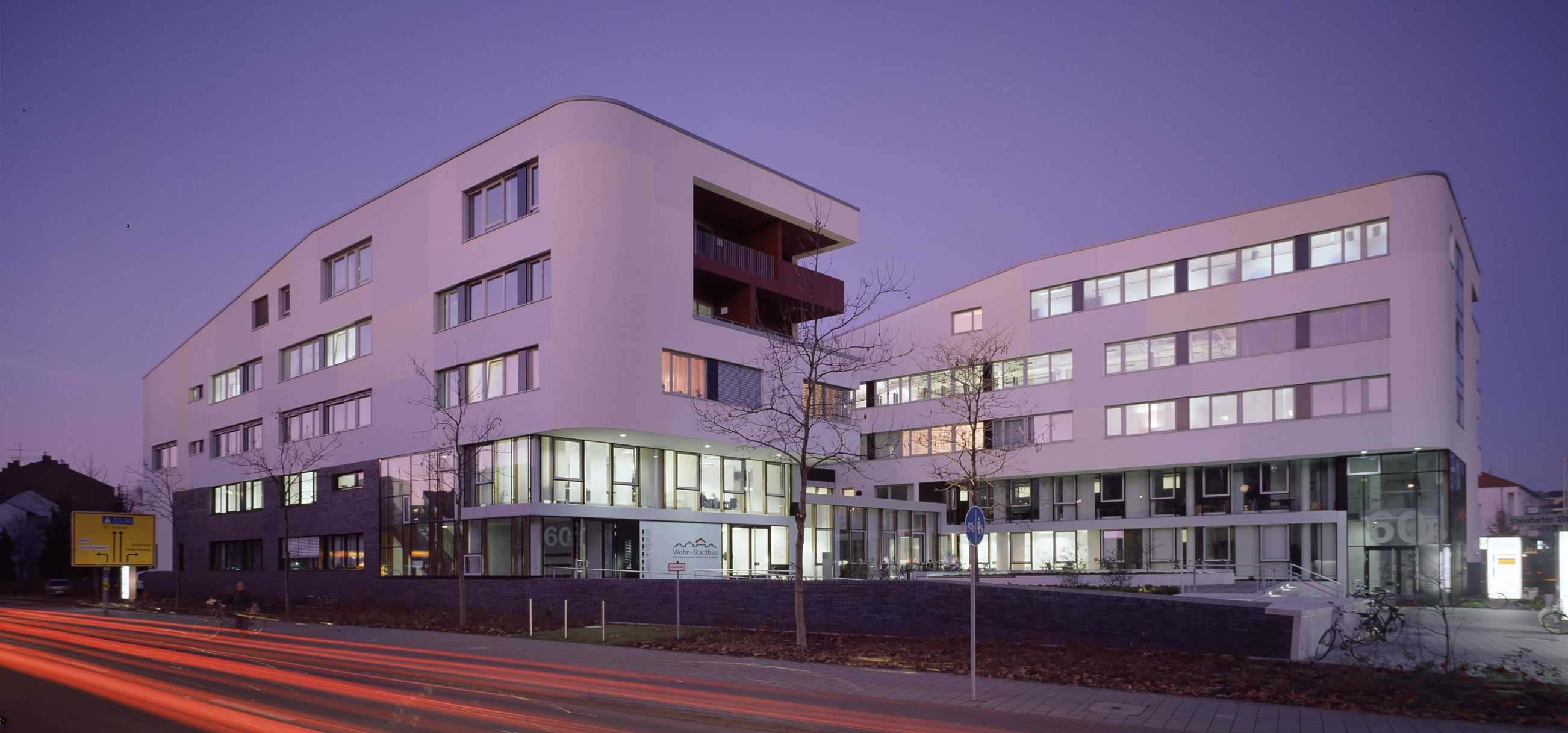
Wohn und Stadtbau Housing Association Headquarters
TYPOLOGY: Office
COUNTRY: Germany
CITY: Münster
YEAR: 2004
COMPETITION: 2001, First prize
CLIENT: Wohn und Stadtbau GmbH
PHOTOS: © Christian Richters
Entering the city from the north, a straight road, at the apex of its perspectival triangle a silhouette of cathedral and other church towers. Progressing into this picture, slightly downhill the view is gradually obscured, the outer traffic ring crossed.
The next 500 m rise, not a dramatic topography but enough to awaken expectation – ‘up there I will be in the city’. Buildings on the right enclose and to some extent counteract the latent drama of this ascent, this arrival. The left is undergoing a transformation, a re-configuring, a chance for a modulated roofline to enhance topographic character.
This is the intention of the sculpted silhouette of the new offices of the ‘Wohn+Stadtbau’ Housing Association. Its crest location is critical. The structured plaster façades of both volumes do not just echo but enhance site topography and the drama of entrance.
Entering the building involves a counter and smaller scale spatial sequence. The building front steps back from the heavily trafficked street to a transparent foyer. The ground floor facilitates intensive visitor traffic, waiting spaces extend into the internal court and playground.







Change Factory
TYPOLOGY: Competition / Office
COUNTRY: German
CITY: Eschweiler
YEAR: 2023
COMPETITION: Closed competition, 2nd Prize
COLLABORATOR: wbp Landschaftsarchitekten GmbH, Bochum
GFA: 11.880 sqm
CLIENT: Stadt Eschweiler
The Change Factory is Eschweiler’s new green, flexible, and flood-resilient innovation hub.
Instead of one large block, it’s a cluster of pavilions, halls, and workspaces connected by a leafy promenade linking the city center to Drieschplatz. Reclaimed bricks, repurposed windows, and lush façades show a commitment to circular construction, while active roofs host orchards, gardens, sports areas, and solar panels. A contoured green ring and rain-retention meadows provide natural flood protection, turning resilience into a design feature. Inside, adaptable modular buildings offer space for events, co-working, research, and community life. Combining low-tech solutions with smart energy systems, the Change Factory sets a new standard for sustainable urban development.









